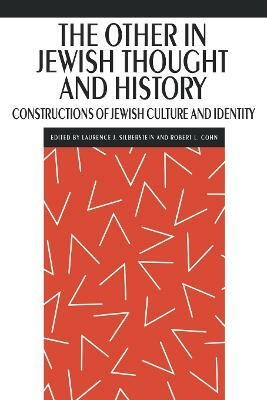The Other in Jewish Thought and History(English, Paperback, unknown)
Quick Overview
Product Price Comparison
Cultural boundaries and group identity are often forged in relation to the Other. In every society, conceptions of otherness, which often reflect a group's fears and vulnerabilities, result in deep-rooted traditions of inclusion and exclusion that permeate the culture's literature, religion, and politics. This volume explores the ways in which Jews have traditionally defined other groups and, in turn, themselves. The contributors, a distinguished international group of scholars, explore the discursive processss through which Jewish identity and culture have been constructed, disseminated, and perpetuated. Among the topics addressed are: Others in the biblical world; the construction of gender in Roman-period Judaism; the Other as woman in the Greco-Roman world; the gentile as Other in rabbinic law; the feminine as Other in kabbalah; the reproduction of the Other in the Passover Haggadah; the Palestinian Arab as Other in Israeli politics and literature; the Other in Levinas and Derrida; Blacks as Other in American Jewish literature; the Jewish body image as symbol of Otherness; and women as Other in Israeli cinema. Contributors to this interdisciplinary volume are: Jonathan Boyarin (New School for Social Research), Robert L. Cohn (Lafayette College), Gerald Cromer (Bar-Ilan University), Trude Dothan (Hebrew University of Jerusalem), Elizabeth Fifer (Lehigh University), Steven D. Fraade (Yale University), Sander L. Gilman (Cornell University), Hannan Hever (Tel Aviv University), Ross S. Kraemer (University of Pennsylvania), Orly Lubin (Tel Aviv University), Peter Machinist (Harvard University), Jacob Meskin (Williams College), Adi Ophir (Tel Aviv University), Ilan Peleg (Lafayette College), Miriam Peskowitz (University of Florida), Laurence J. Silberstein (Lehigh University), Naomi Sokoloff (University of Washington), and Elliot R. Wolfson (New York University).


